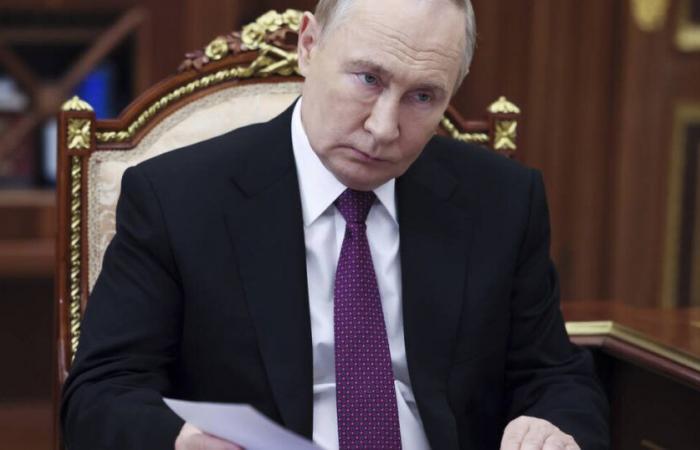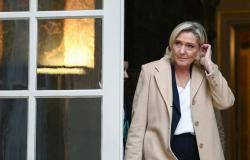
Time is running out. For Kyiv, for Moscow and for Westerners. The escalation of recent days in the conflict between Ukraine and Russia, with the unprecedented firing on Thursday, November 21 on the Ukrainian city of Dnipro of Russian ballistic missiles designed to potentially carry nuclear warheads, is an indication of feverishness increased. Vladimir Putin also ordered this Friday, November 22, the “mass production” of these missiles called Orechnik. The threat of a global and nuclear conflict mentioned – not for the first time – by the Russian president, is also a sign of increased nervousness. It is linked, without a doubt, to the in-between situation that reigns in the United States after the election of Donald Trump and before his arrival at the White House on January 20. While he has shown little enthusiasm for the idea of continuing financial aid to Ukraine, while claiming to be able to put an end to the conflict in twenty-four hours, the appointments envisaged for his future administration send contradictory signals and the truth is that no one knows what Donald Trump's attitude will be in January.
So, in the meantime, all the protagonists try to place the most pawns on their side of the chessboard, just to find themselves in a position of strength at the time of political change in the United States. NATO announced an emergency meeting for Tuesday, at the request of Kyiv, which is demanding a “firm reaction from the world” facing a Russian president who, once again, “proves that he is doing everything to prolong the conflict.” The new Secretary General of the North Atlantic Treaty Organization, former Dutch Prime Minister Mark Rutte, was, according to his country's and American media, on his way to Florida and Mar-a- on Friday. Lago, where he was to meet with the president-elect. NATO, often highly criticized by Trump, however warned through its spokesperson that the ballistic attacks and threats from Putin “will change neither the course of the conflict nor the determination of NATO allies to support Ukraine.”
“More step”
Poland and Sweden indicated that they were not “intimidated” by the «provocations» of Russia, German Chancellor Olaf Scholz spoke of a “dangerous escalation”, China called on all parties to “restraint” and French Foreign Minister Jean-Noël Barrot traveled to London to meet with his British counterpart David Lammy and reiterate their determination to make “requisites” to support Ukraine. For his part, British Prime Minister Keir Starmer recalled that the war “could stop today if Putin stopped being aggressive.” Before adding: “We cannot let Putin win this war.” Even Kim Jong-un, the leader of North Korea, reacted by saying that the threat of nuclear war “had never been so high”. In Kyiv, the Ukrainian Parliament, the Rada, canceled its session on Friday for fear of new Russian strikes.
If the internationalization of the conflict has no longer been in doubt for a while, and in particular since the confirmation that thousands of North Korean soldiers are aligned in Russia, on the Ukrainian border, ready to fight alongside the Russians, and although the threat of a nuclear response from Vladimir Putin intervened at each stage of the war without being followed up, when red lines were crossed (delivery of tanks, missiles, drones, fighter planes), the staffs Westerners do not hide the fact that the events of the last days constitute “one more step in the escalation”.
“The current situation offers Putin a significant temptation to escalate. With Trump not yet in the White House, any escalation should not interfere with any peace initiatives, but, on the contrary, reinforce Trump's argument that we must engage directly with him. confirms in an analysis Tatiana Stanovaya, director of the R.Politik think tank. The Russian president may be tempted to “present to the West two difficult choices”, believes the researcher: “Do you want nuclear war? Because you might get it” or “Let’s end this war, but on Russia’s terms.”
The Kremlin also boasted on Friday, insisting that the United States had “Understood” Vladimir Putin's message. For Ivo Daalder, former American ambassador to NATO, these threats are nothing new, and if “they must be taken seriously”, he said on the BBC“at the same time, we should not be intimidated by this blackmail or these changes in doctrine… We must remember that these actions are actually a sign of Vladimir Putin's weakness, not strength».





